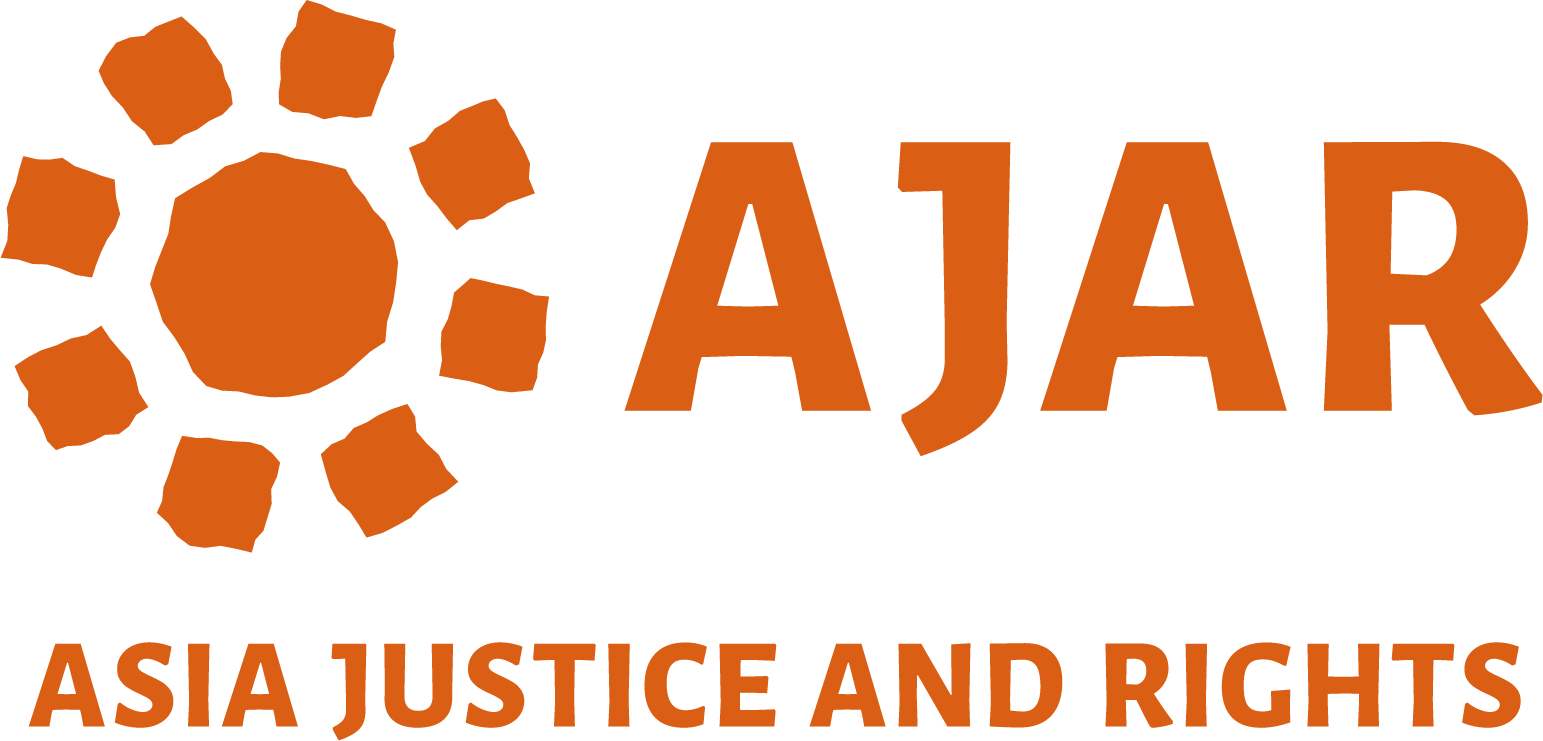Information collected by a truth commission may be useful to those investigating cases for prosecution while the commission is still operating, immediately after its conclusion, or many years later. Generally, a truth commission should be viewed as complementary to judicial action. Even where prosecutions are not immediately expected, it is important that truth commissions conduct their work keeping in mind that possibilities for prosecution may eventually be possible. In that event a truth commission’s report and its other records might be important as background materials and to provide leads to witnesses. Even if a commission’s report does not point to specific perpetrators, the commission’s information can reveal greater patterns of violations and show institutional involvement as well as command responsibility of those at the top.
အမှန်တရားကော်မရှင်၏လုပ်ငန်းများ လည်ပတ်နေစဉ်ကာလအတွင်း၊ ကော်မရှင်၏ လုပ်ငန်းများ ပြီးဆုံးပြီးနောက် ချက်ချင်း သို့မဟုတ် နှစ်ပေါင်းများစွာကြာပြီးနောက်တွင် အမှန်တရားကော်မရှင်က စုဆောင်းရရှိထားသော သတင်းအချက်အလက်များသည် တရားစွဲဆိုရန်အတွက် အမှုကိစ္စများကို စုံစမ်းစစ်ဆေးရာတွင် အသုံးဝင်နိုင်ပါသည်။ ယေဘုယျအားဖြင့်၊ အမှန်တရားကော်မရှင်သည် တရားရေးဆိုင်ရာ ဆောင်ရွက်ချက်များကို ပံ့ပိုးပေးသည့် ဆောင်ရွက်ချက်တစ်ခုအဖြစ် ရှုမြင်သင့်သည်။ တရားစွဲဆိုမှုများကို ချက်ချင်းမမျှော်လင့်နိုင်သောအခါတွင်လည်း၊ တရားစွဲဆိုနိုင်မည့် အလားအလာများ နောက်ဆုံးတွင် ဖြစ်ပေါ်လာလိမ့်မည်ဟု မှတ်ယူထားပြီး အမှန်တရားကော်မရှင်များက ၎င်းတို့၏လုပ်ငန်းကို ဆောင်ရွက်ရန် အရေးကြီးပါသည်။ တရားစွဲဆိုမှု ပေါ်ပေါက်လာပါက အမှန်တရားကော်မရှင်၏ အစီရင်ခံစာနှင့် ၎င်း၏အခြားမှတ်တမ်းများသည် နောက်ခံအချက်အလက်များအဖြစ်နှင့် မျက်မြင်သက်သေများကို ရှာဖွေဖော်ထုတ်ရာတွင် အရေးကြီးသည်။ အကယ်၍ ကော်မရှင်၏ အစီရင်ခံစာတွင် ကျူးလွန်သူများကို အတိအကျအားဖြင့် ညွှန်ပြခြင်းမရှိသော်လည်း၊ ကော်မရှင်၏ သတင်းအချက်အလက်များသည် ကြီးမားကျယ်ပြန့်သောချိုးဖောက်မှုပုံစံများကို ဖော်ထုတ်ပေးနိုင်ပြီး အင်စတီကျူးရှင်းများ၏ ပါဝင်ပတ်သက်မှုအပြင် ထိပ်တန်းအရာရှိများ၏ ကြီးကြပ်ကွပ်ကဲမှုအရ တာဝန်ရှိမှုကိုလည်း သက်သေပြသနိုင်ပါသည်။
What is Prosecution?
Prosecutions are judicial investigations of those alleged to be responsible for human rights violations or other crimes. Prosecutors frequently emphasise investigations of the principal suspects considered most responsible for massive or systematic crimes. Criminal prosecutions focus on individual criminal responsibility, yet they also have the potential to target crimes committed in a systematic and widespread manner. Prosecutions may restore victims’ dignity and public confidence in the rule of law by combating impunity.
တရားစွဲဆိုခြင်းဆိုသည်မှာ အဘယ်နည်း?
တရားစွဲဆိုခြင်းများသည် လူ့အခွင့်အရေးချိုးဖောက်မှုများ သို့မဟုတ် အခြားရာဇ၀တ်မှုများအတွက် တာဝန်ရှိသည်ဟု စွပ်စွဲခံရသူများအား တရားရေးဆိုင်ရာ စစ်ဆေးမှုများဖြစ်သည်။ အစိုးရရှေ့နေများသည် အလွန်ကြီးမားသော သို့မဟုတ် စနစ်တကျစီစဉ်ဆောင်ရွက်သော ရာဇဝတ်မှုများအတွက် တာဝန်အရှိဆုံးဟု ယူဆသည့် အဓိကသံသယရှိသူများအား စုံစမ်းစစ်ဆေးမှုများ ဆောင်ရွက်ခြင်းများကို အာရုံစိုက်အလေးထားလေ့ရှိသည်။ ရာဇ၀တ်မှုဆိုင်ရာ တရားစွဲဆိုမှုများသည် လူပုဂ္ဂိုလ်တစ်ဦးချင်း၏ ပြစ်မှုဆိုင်ရာ တာဝန်ရှိမှုကို အာရုံစိုက်ပြီး စနစ်တကျစီစဉ်၍ ကျယ်ကျယ်ပြန့်ပြန့် ကျုးလွန်သော ပြစ်မှုများကို ပစ်မှတ်ထားစုံစမ်းစစ်ဆေးမှုများ ဆောင်ရွက်နိုင်သည်။ တရားစွဲဆိုမှုများသည် ပြစ်ဒဏ်မှကင်းလွတ်နေမှုများကို တိုက်ဖျက်ခြင်းဖြင့် တရားဥပဒေစိုးမိုးရေးအပေါ် လူထု၏ယုံကြည်မှုကို ပြန်လည်ရရှိစေနိုင်ပြီး ကျူးလွန်ခံရသူများ၏ ဂုဏ်သိက္ခာကိုလည်း ပြန်လည်တည်ဆောက်ပေးသည်။
What are the purposes of prosecutions?
တရားစွဲဆိုမှုများ၏ ရည်ရွယ်ချက်တွေက ဘာတွေလဲ?
Prosecutions have several purposes. They:
တရားစွဲဆိုမှုများတွင် ရည်ရွယ်ချက်များစွာရှိပါသည်။ တရားစွဲဆိုမှုများမှာ
- respond to victims’ demands for justice by punishing those responsible for violations and acknowledging the victims’ suffering;
- uphold the rule of law by fulfilling the legal obligation to provide remedy for victims;
- condemn violations and impunity, assure a fair objective process, and serve as a deterrent;
- determine individual responsibility as opposed to collective guilt;
- establish an accurate historical record, revealing what happened and why; and
- symbolise the beginning of a new chapter in a nation’s life marked by social justice and the
- rule of law.
● ကျူးလွန်ချိုးဖောက်မှုများအတွက် တာဝန်ရှိသူများကို ပြစ်ဒဏ်ပေးခြင်းနှင့် ကျူးလွန်ခံရသူများ၏ ဆင်းရဲဒုက္ခဝေဒနာများကို အသိအမှတ်ပြုခြင်းဖြင့် ကျူးလွန်ခံရသူများ၏ တရားမျှတမှုရရှိရေးတောင်းဆိုချက်များကို တုန့်ပြန်ဖြည့်ဆည်းဆောင်ရွက်ပေးသည်။
● ကျူးလွန်ခံရသူများကို ကုစားမှုအစီအစဉ်များ ဆောင်ရွက်ပေးအပ်ရန် ဥပဒေကြောင်းအရ တာဝန်ဝတ္တရားများကို ဖြည့်ဆည်းပေးခြင်းဖြင့် တရားဥပဒေစိုးမိုးရေးကို ထိန်းသိမ်းစောင့်ရှောက်ပေးသည်။
● ကျူးလွန်ချိုးဖောက်မှုများနှင့် ပြစ်ဒဏ်မှကင်းလွတ်နေမှုများကို ဆန့်ကျင်ရှုတ်ချသည်။ မျှတ၍ ဓမ္မဓိဌာန်ကျသော လုပ်ငန်းစဉ်ဖြစ်လာရန် အာမခံပေးသည်။ ထို့အပြင် (ကျူးလွန်ချိုးဖောက်မှုများမဖြစ်ပွားရန်) ဟန့်တားပေးသူအဖြစ် ဆောင်ရွက်ပေးသည်။
● စုပေါင်းအပြစ်အဖြစ်ခံယူခြင်း (အားလုံး၏အပြစ်ဖြစ်သည်ဟု သတ်မှတ်ခြင်း) ကို ဆန့်ကျင်ပြီး လူပုဂ္ဂိုလ်တစ်ဦးချင်းစီ၏ တာဝန်ရှိမှုကို ဆုံးဖြတ်ပေးသည်။
● တိကျသောသမိုင်းမှတ်တစ်ခုကို ဖော်ထုတ်ပေးသည်၊ မည်သည့်ဖြစ်စဉ်များဖြစ်ပျက်ခဲ့သည် အဘယ်ကြောင့် ဖြစ်ပျက်ခဲ့ရသည် စသည်တို့ကို ထုတ်ဖော်ပေးသည်။
● လူမှုတရားမျှတမှုနှင့် တရားဥပဒေစိုးမိုးရေးများ အကောင်အထည်ပေါ်လာခြင်းဖြင့် တိုင်းပြည်တစ်ခု၏ သမိုင်းတွင် စာမျက်နှာအခန်းသစ်တစ်ခု စတင်ခြင်းကို အထိမ်းအမှတ်ပြုဖွင့်လှစ်ပေးသည်။
